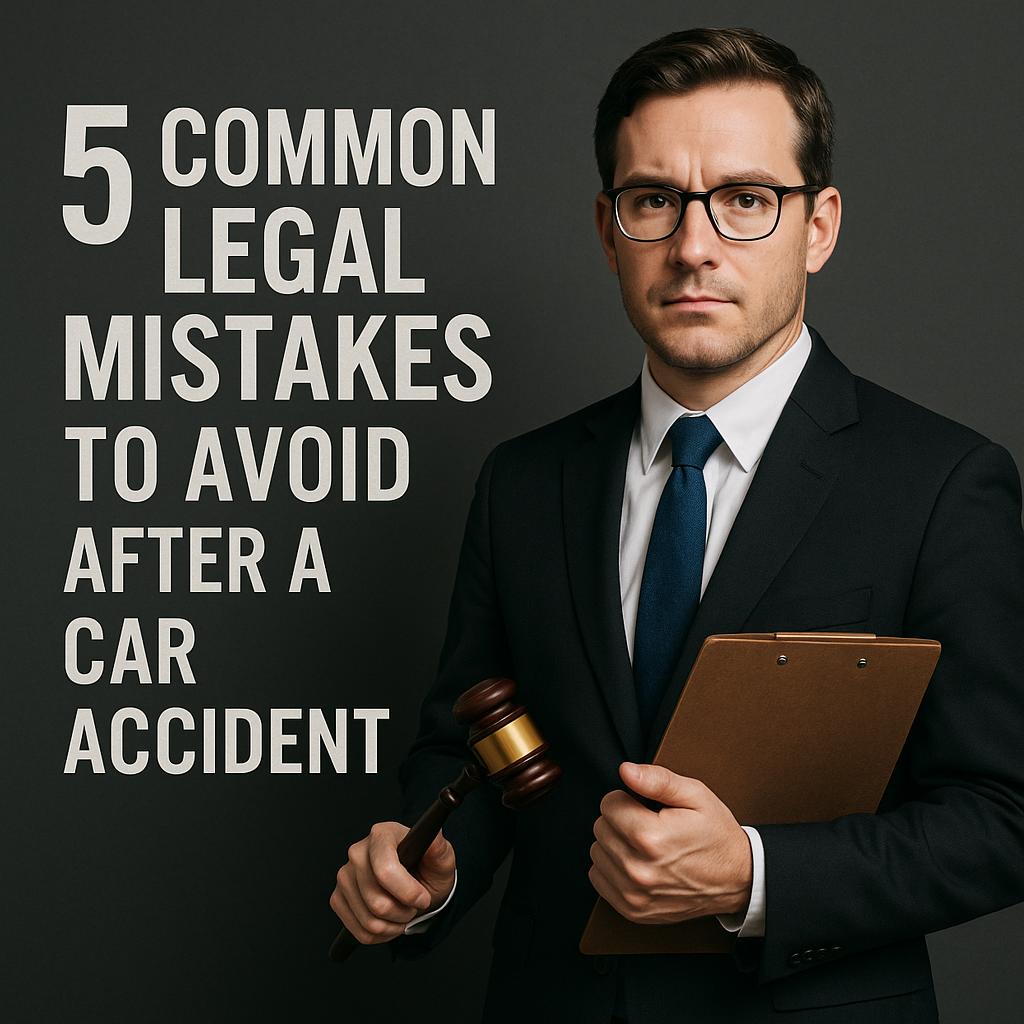
After a car accident, most people focus on the immediate shock, the damage, and whether everyone is okay. But what happens next can matter just as much—especially when it comes to protecting your legal and financial interests.
If you're an individual driver or managing vehicles as part of your business, it’s easy to make missteps that can create headaches down the line. Let’s walk through five legal mistakes people often make after an accident—and how to steer clear of them.
One of the most common mistakes is skipping the official report—either because the damage seems minor or you think it’s not worth the trouble. But even a small fender bender can become complicated if the other party files a claim or disputes the facts later.
Instead, make it a habit to report any accident to law enforcement, regardless of severity. Ask for a copy of the police report; it often becomes a key piece of evidence in insurance or legal proceedings. Don’t forget to notify your insurance provider too, even if you're not planning to file a claim. Keeping them in the loop avoids potential complications.
If you’re managing a business fleet, make sure your drivers know exactly what to do. Clear internal reporting procedures help your legal and HR teams respond quickly and accurately.
In the moment, it’s natural to want to say something like “I’m sorry” or “I didn’t see you”—but those words can be taken as an admission of guilt. Even if you're trying to be polite, statements like that can later work against you.
What’s better? Stick to the facts. Share only the necessary information with the other party and police, and let the investigation determine who’s at fault. Avoid speculation or assigning blame, even to yourself.
For businesses, driver training should include how to speak (and what not to say) in the aftermath of a collision. A few thoughtful words could help avoid serious legal consequences later.
A police report and your memory aren’t always enough. In fact, missing or incomplete evidence is a common reason claims get delayed or denied.
If you’re able, take photos of everything: the vehicles, license plates, street signs, traffic lights, weather conditions, and any visible injuries. If there are witnesses, get their contact information. Even seemingly small details can make a big difference.
Companies should consider outfitting vehicles with dashcams and providing basic accident kits. Having tools on hand helps drivers act quickly and effectively in the moment.
If you walk away from the accident feeling okay, that’s a relief—but it doesn't mean you're in the clear. Some injuries take hours or even days to show symptoms. Waiting too long to get checked out can affect both your health and your legal options.
The smarter move? Visit a doctor as soon as possible, even if it’s just for peace of mind. Make sure to keep records of any diagnosis, treatment plans, and follow-up visits. These documents help support any future claims and show you took the situation seriously.
From a business perspective, encouraging employees to get timely medical evaluations—especially after work-related accidents—can protect both their well-being and your company from liability issues.
You might think you can handle things on your own, especially if the accident seems straightforward. But insurance companies are often working to protect their bottom line—not yours. Without legal guidance, you could end up settling for less than you deserve or saying something that damages your claim.
That doesn’t mean you need to file a lawsuit. But talking to an attorney—even for a quick consultation—can give you clarity on your rights and next steps. It’s especially important in cases involving injuries, significant damage, or when the fault is disputed.
Businesses should have trusted legal counsel ready to review claims and advise on next steps. This ensures the company’s interests are protected, and it helps your team avoid costly mistakes during the process.
If your company operates a fleet—whether it's delivery trucks, service vans, or sales vehicles—having a plan in place before an accident happens is just smart risk management. This can include:
Training drivers on what to do immediately after a collision
Keeping checklists and emergency contact info in every vehicle
Scheduling regular insurance reviews to confirm your coverage matches current needs
Building relationships with legal and medical professionals you can contact quickly
These steps don’t just protect your business—they show your team you care about their safety and support.
No one expects to get into an accident, but being prepared makes a big difference. Whether you’re behind the wheel or managing people who are, avoiding these five legal mistakes can help you stay focused on recovery and resolution—not red tape.
Take the time to document the scene, stay cautious with your words, get medical care early, and know when to ask for legal help. It’s a straightforward approach that can save you time, money, and unnecessary stress down the road.
And for companies: your accident response policy shouldn't just be a checklist—it should be something your people actually understand and feel confident using when it counts.
Don’t let a simple error hurt your case. Use our trusted law firm directory to connect with experienced attorneys who can guide you through every step after a car accident. Your legal peace of mind starts here!
Copyright @2024 smarteyeapps.com. All rights reserved